Discover the Power of Beta Carotene for Radiant and Healthy Skin!
The Benefits of Beta Carotene for Health and Skincare
Beta Carotene (β carotene) is a potent antioxidant that is commonly associated with its ability to promote healthy skin. It's a carotenoid, a type of pigment found in a variety of fruits and vegetables, that our bodies can convert into Vitamin A, also known as retinol.
Carotenes that are changed to vitamin A in the body include alpha carotene, beta carotene, and beta cryptoxanthin.
The inclusion of Beta Carotene in the diet not only helps maintain skin health but also supports eye health and boosts the immune system. It's nature's way of providing us with a substance that is vital for our overall wellness.
What are antioxidants?
Antioxidants are substances that protect our cells from damage caused by free radicals. Free radicals are unstable molecules that can cause harm to our cells and tissues, leading to various health problems such as cancer, heart disease, and premature aging. Antioxidants neutralize these free radicals, preventing them from causing damage and maintaining the health of our cells.
Beta Carotene is one of the most potent antioxidants, and it's especially beneficial for skin health.
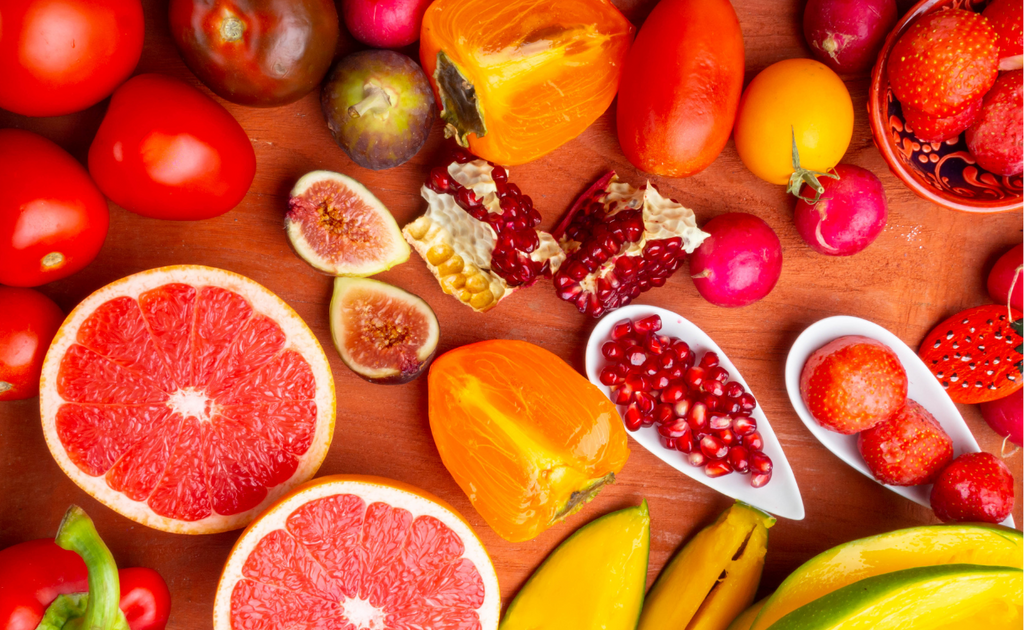
What is Beta Carotene?
Beta Carotene is a carotenoid, a type of plant pigment responsible for the vibrant colours of many fruits and vegetables.
It is named after carrots, where it was first discovered. This natural compound plays an essential role in human health. It's classified as a provitamin A, meaning it can be converted into Vitamin A or retinol by our bodies as needed.
This nutrient is renowned for its antioxidants properties, which help protect the body against damaging free radicals. In particular, Beta Carotene is widely recognized for its benefits to skin and eye health, immune system enhancement, and potential cancer prevention.
Common Sources of Beta Carotene in Food
Beta Carotene is naturally abundant in a variety of fruits and vegetables, particularly those that are orange, yellow or red in colour.
Top 7 sources of Beta Carotene in Food
- Carrots: This root vegetable is an excellent source of Beta Carotene, providing over 100% of the daily recommended intake in just one cup.
- Sweet potatoes: Just like carrots, sweet potatoes are a rich source of Beta Carotene and other essential nutrients such as fibre and potassium.
- Spinach: This leafy green vegetable is packed with Beta Carotene and other beneficial nutrients, making it a great addition to any diet.
- Apricots: These small, juicy fruits are not only delicious but also rich in Beta Carotene, providing over 50% of the daily recommended intake per cup.
- Red peppers: With their vibrant colour and sweet taste, red peppers are an excellent source of Beta Carotene, providing over 100% of the daily recommended intake in just one cup.
- Mangoes: These tropical fruits are a rich source of Beta Carotene, as well as other beneficial nutrients such as Vitamin C and fiber.
- Cantaloupe: This melon is not only refreshing but also packed with Beta Carotene and other essential vitamins and minerals.
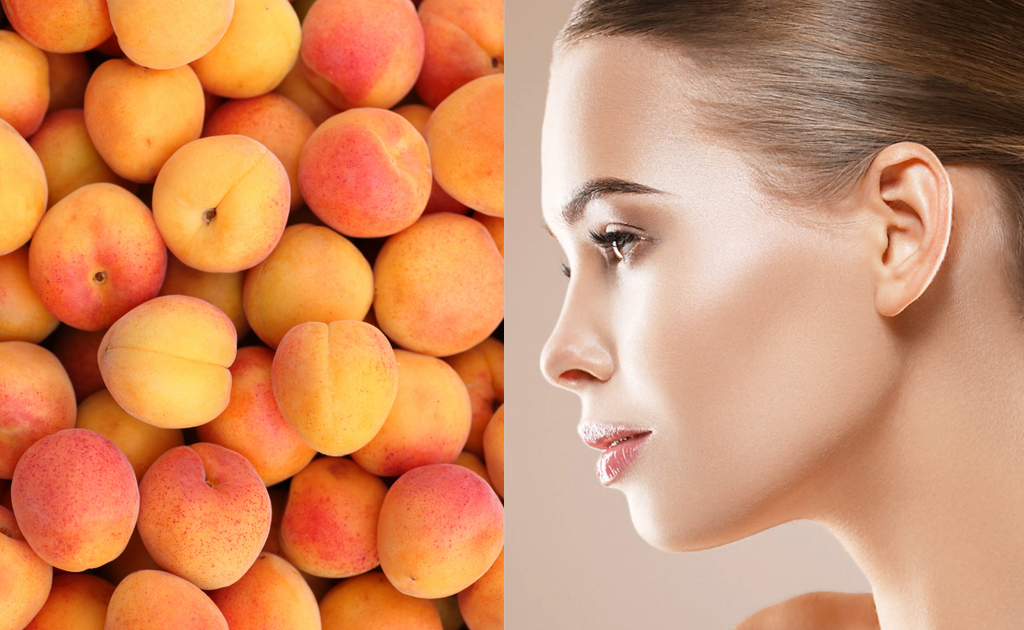
Beta carotene benefits for Skin Health
Top 7 Skin Benefits of Beta Carotene:
- Protection against UV damage: Beta Carotene can help protect the skin from harmful UV radiation, preventing sunburn and reducing the risk of skin cancer.
- Anti-aging properties: As an antioxidant, Beta Carotene helps fight free radicals that cause premature aging. It also supports collagen production, promoting firmness and elasticity in the skin.
- Treatment for acne: Vitamin A, derived from Beta Carotene, is a common ingredient in acne treatments due to its ability to regulate oil production and promote cell turnover.
- Skin brightening: Beta Carotene can help even out skin tone and reduce the appearance of dark spots and hyperpigmentation.
- Moisturization: Vitamin A helps maintain proper moisture levels in the skin, keeping it hydrated and healthy.
- Treatment for psoriasis: Studies have shown that Beta Carotene can help improve symptoms of psoriasis, a chronic skin condition characterized by red, scaly patches.
- Wound healing: Vitamin A is essential for wound healing and can help speed up the recovery process.
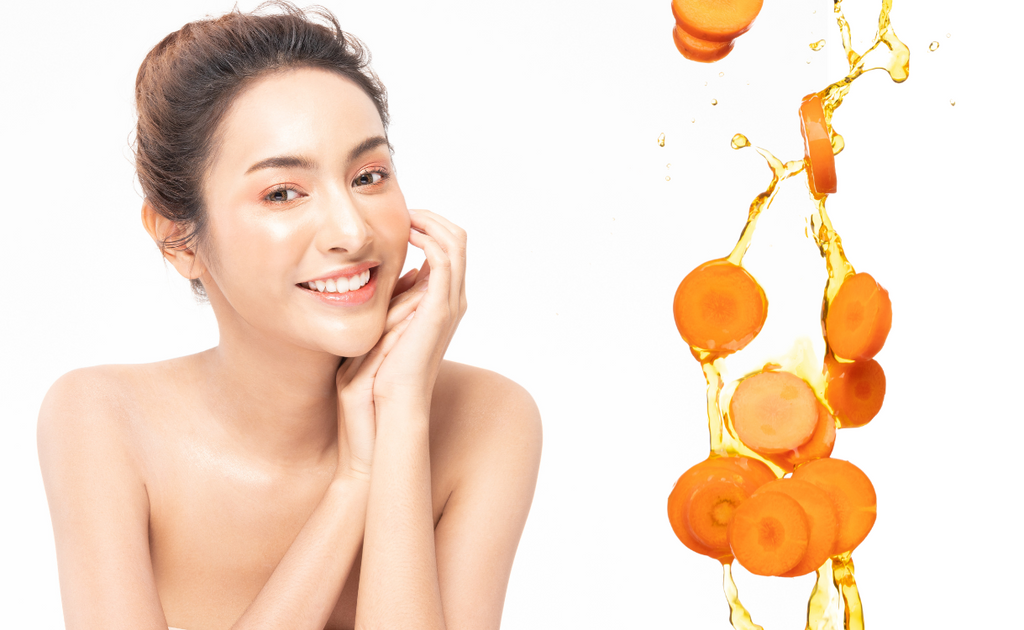 Age related macular degeneration, a leading cause of vision loss in older adults. Incorporating beta carotene-rich foods into your diet may help delay or prevent this condition. Additionally, studies have shown that consuming beta carotene can improve cognitive function and memory in older adults.
Age related macular degeneration, a leading cause of vision loss in older adults. Incorporating beta carotene-rich foods into your diet may help delay or prevent this condition. Additionally, studies have shown that consuming beta carotene can improve cognitive function and memory in older adults.
Beta Carotene and Sun Protection
Beta Carotene plays a significant role in protecting the skin from sun damage. It achieves this by acting as a natural sunblock. When consumed, beta carotene accumulates in the skin, where it provides a natural defence against ultraviolet (UV) radiation. It helps to prevent sunburn, particularly in individuals with light-sensitive skin. It does this by neutralizing free radicals produced by skin exposure to the sun, thereby reducing photoaging and promoting skin health.
It's important to note, though, that Beta Carotene is not a replacement for traditional sunscreens, but rather a complementary measure to help reduce the harmful effects of sun exposure. Adding Beta Carotene-rich foods to your diet can help to strengthen your skin's defences against the sun.
Beta carotene's role as a natural sunblock is attributed to its antioxidant properties and its accumulation in the skin. When ingested, beta carotene is transported through the bloodstream and deposited in the skin. This deposit acts as a barrier, absorbing some of the sun's damaging ultraviolet (UV) rays before they can affect the skin cells.
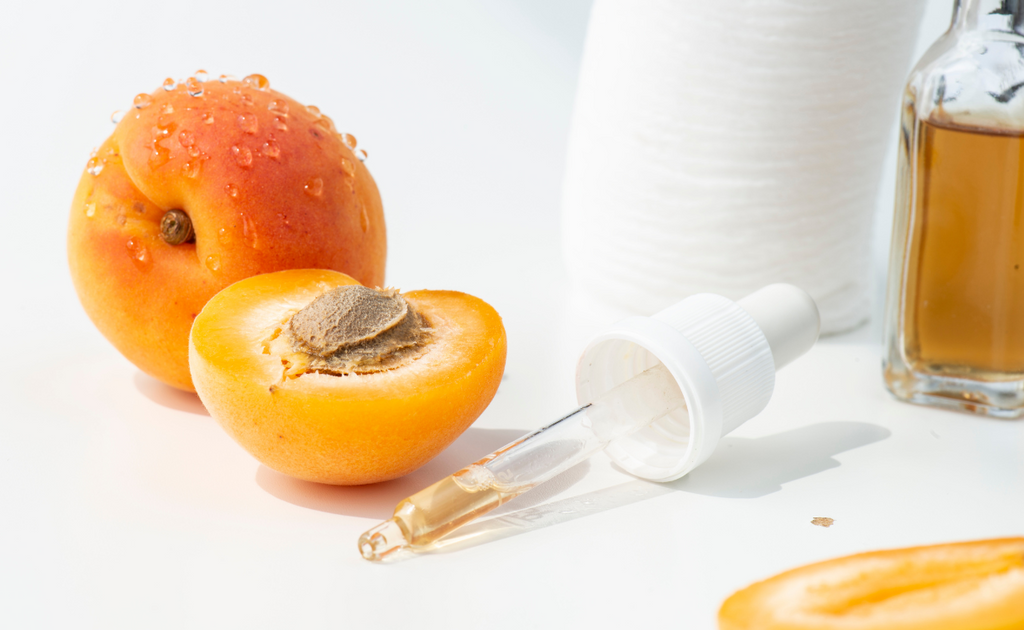
Furthermore, studies have suggested that regular consumption of beta carotene can increase the skin's resistance to UV-induced erythema or sunburn. This is likely due to its ability to reduce inflammation and enhance the skin's immune response.
However, it's important to stress that while beta carotene can provide some protective benefits against sun damage, it is not a substitute for sunscreen. Traditional sunscreens provide broader protection against both UVA and UVB rays and should be used alongside a balanced diet rich in beta carotene for optimal skin health.
Other Health Benefits of Beta Carotene
Beyond its significant contribution to skin health, Beta Carotene also offers a variety of other health benefits. It is known to support eye health, particularly in preventing age-related macular degeneration, a leading cause of vision loss. Beta Carotene is converted into vitamin A in the body, a nutrient that is essential for good vision, especially in low light.
Additionally, Beta Carotene can boost immune system function. It does this by enhancing the body's natural defense system, helping to protect cells from harmful free radicals. Furthermore, research suggests that Beta Carotene may have a beneficial impact on cognitive health.
Some studies indicate that it might delay cognitive aging and reduce the risk of diseases like Alzheimer's, as well as lung cancer risk, prostate cancer, cardiovascular disease. However, more research is needed to fully understand these effects.
Vitamin A deficiency can lead to various health issues, including vision problems, weakened immune function, and skin dryness. Therefore, ensuring adequate intake of beta carotene in your diet is essential for preventing these deficiencies.
 Taking beta carotene supplements should be done cautiously and under the guidance of a healthcare professional. A balanced approach, incorporating both dietary sources and supplements if needed, is the best way to reap all the benefits of beta carotene while minimizing potential risks.
Taking beta carotene supplements should be done cautiously and under the guidance of a healthcare professional. A balanced approach, incorporating both dietary sources and supplements if needed, is the best way to reap all the benefits of beta carotene while minimizing potential risks.
How to Incorporate Beta Carotene into Your Diet
Incorporating Beta Carotene-rich foods into your diet is a straightforward task, as they are widely available and can easily be added to various meals. Start with colourful fruits and vegetables - the more vibrant, the better.
Carrots, sweet potatoes, and pumpkins have an especially high concentration of Beta Carotene. Spinach and other leafy greens are also good sources. Try roasting or steaming these vegetables to retain as much of the nutrient as possible.
Fruits like mangoes, apricots, and cantaloupes are not only delicious but also high in Beta Carotene. They make for perfect snacks or dessert options.
Incorporating these foods into your meals can be as simple as adding diced fruits to your breakfast cereal or yogurt, having a mixed greens salad for lunch, or pairing your main course with a side of roasted vegetables for dinner.
Remember, Beta Carotene is fat-soluble, meaning it's absorbed better when consumed with some fat. Therefore, don't shy away from using a little olive oil on your salad or roasting your vegetables in it. It could enhance your body's absorption of Beta Carotene, ensuring that you reap all its benefits.
Lastly, while it's beneficial to incorporate Beta Carotene-rich foods into your diet, it's also essential to maintain a balanced diet overall. Consuming too much Beta Carotene can lead to carotenosis, a condition characterized by yellow-orange discoloration of the skin.
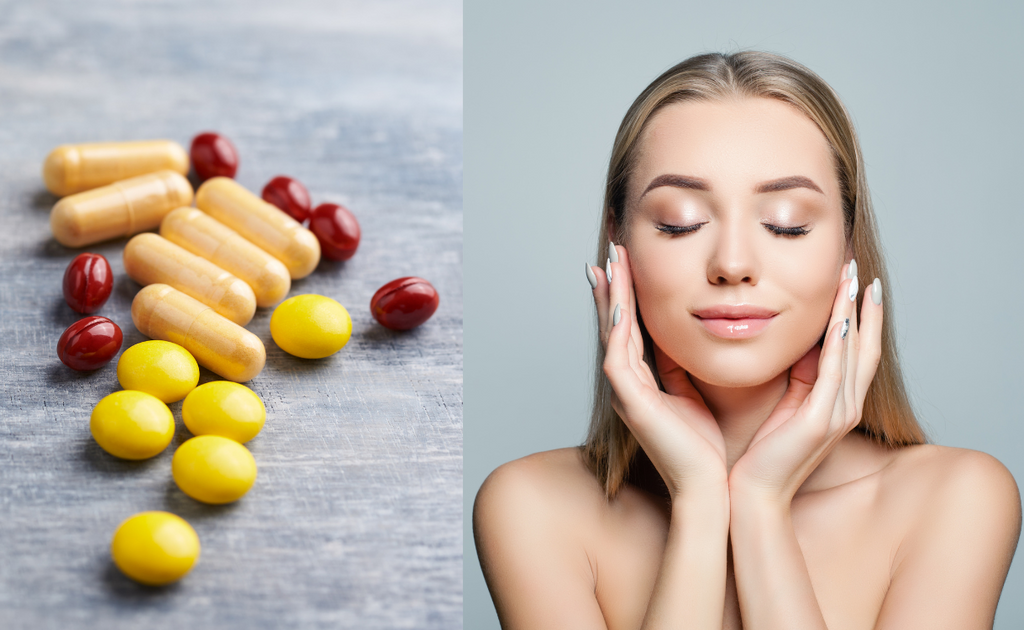
The Balance Between Dietary Beta Carotene and Beta Carotene Supplements
Achieving a balance between dietary beta carotene and supplements is crucial to optimizing the nutrient's benefits while minimizing potential risks.
Dietary beta carotene—obtained from fruits, vegetables, and other food sources—is generally considered safe and beneficial. It's packaged naturally with other nutrients and fibre, promoting overall health and well-being.
On the other hand, beta carotene supplements offer a concentrated dose of the nutrient, which can be useful in certain medical conditions or for those with specific dietary restrictions. However, high doses of beta carotene supplements have been associated with health risks, including a potential increase in lung cancer among smokers.
Beta carotene supplementation may be recommended for those with certain medical conditions such as cystic fibrosis or celiac disease, where absorption of beta carotene from food sources may be impaired. However, it's important to note that high doses of beta carotene supplements can potentially increase the risk of lung cancer in smokers.
Retinol activity equivalents (RAE) for beta carotene, recommended daily intake (RDI) for beta carotene. It's crucial to consult with a healthcare professional before starting any supplement regimen and to follow recommended dosage guidelines. Additionally, regular check-ins with your healthcare provider can help ensure that you're not exceeding safe levels of beta carotene intake through supplements.

Developing lung cancer, particularly in smokers. Therefore, when considering beta carotene supplementation, it is crucial to consult with a healthcare professional and to follow recommended daily intake guidelines carefully. Dietary supplements, antioxidant vitamin supplementation health professionals , lung cancer incidence.
Preformed vitamin a are not advised during pregnancy, for people with a heart disease risk, therefore is it crucial to adhere to the vitamin supplementation guidelines.
It's also worth noting that overconsumption of beta carotene—be it from diet or supplements—can result in carotenemia, a harmless but potentially distressing condition that turns the skin yellow-orange.
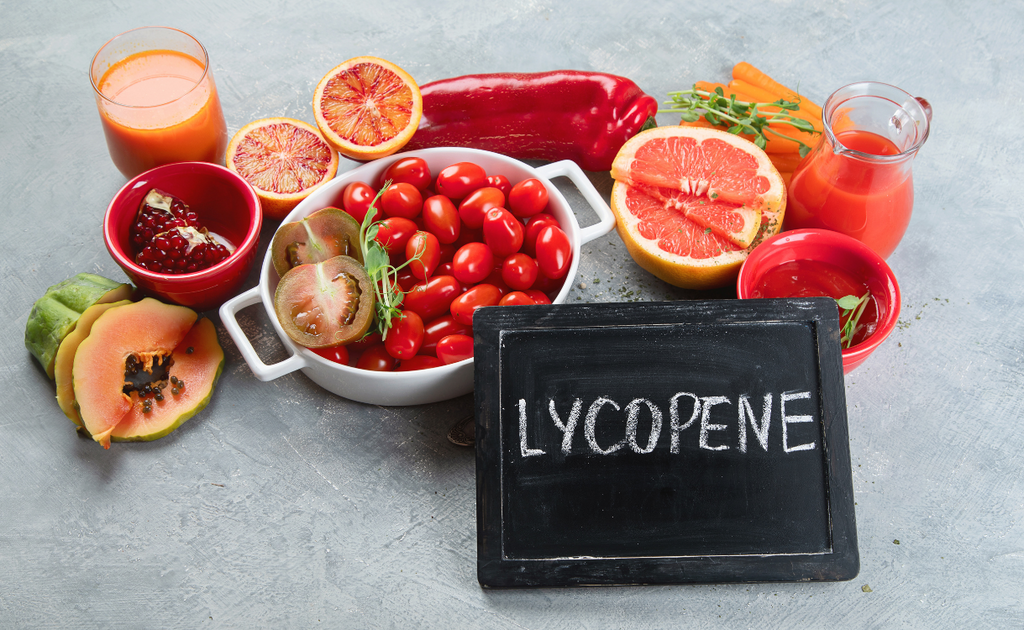
Summary
In conclusion, Beta Carotene plays a pivotal role in maintaining and enhancing skin health. As an antioxidant, it mitigates the damaging effects of free radicals produced by exposure to UV radiation, which can lead to premature skin aging and the development of skin cancers. Regular consumption of Beta Carotene can also increase the skin's resistance to sunburn.
However, it should not be used as a substitute for sunscreen, but as a supplement to a proper skincare routine. Incorporating Beta Carotene-rich foods into your diet can provide these benefits, alongside many others, including improved vision, enhanced immune function, and potentially even better cognitive health. Remember, while Beta Carotene is essential, it is just as crucial to maintain a balanced, varied diet for overall health and well-being.
Whether it's vibrant carrots, delicious sweet potatoes, or succulent mangoes, incorporating these nutrient-rich foods into your meals can be an enjoyable and rewarding endeavour.
Remember, a varied and colorful diet not only adds visual appeal to your meals but also contributes significantly to your overall health and well-being. So, why wait? Start enhancing your diet with Beta Carotene-rich foods today and experience the positive impacts for yourself.
Start incorporating beta carotene-rich foods into your diet today and reap the numerous health benefits that this powerful antioxidant has to offer.
Remember to maintain a balanced approach, and always consult a healthcare professional before starting any supplementation regimen. With proper care and nutrition, you can enjoy healthy skin, improved vision, enhanced
Beta Carotene is a powerful nutrient with numerous health benefits for the body. From supporting skin health and vision to boosting immune function and potentially even cognitive health, it's clear that this antioxidant plays an essential role.

References
["The Role of Antioxidants in Skin Care." The National Center for Biotechnology Information (NCBI).](https://www.ncbi.nlm.nih.gov/pmc/articles/PMC3583891/)
["Beta Carotene and Lung Health: Benefits and Risks." The National Center for Biotechnology Information (NCBI).](https://www.ncbi.nlm.nih.gov/pmc/articles/PMC4631792/)
["Beta Carotene and Cognitive Function." The National Center for Biotechnology Information (NCBI).](https://www.ncbi.nlm.nih.gov/pmc/articles/PMC5852837/)
Acta Dermatovenerol Alp Panonica Adriat . 2008;17(4):160-2. Bjelakovic G, Nikolova D,Gluud LL, Simonetti RG, Gluud C. Mortality in randomized trials of antioxidant supplements for primary and secondary prevention: systematic review and meta-analysis. JAMA . 2007;297:842-57. Bjelakovic G, Nikolova D, Simonetti RG, Gluud C. Antioxidant supplements for preventing gastrointestinal cancers. Cochrane Database Syst Rev . 2008 Jul 16;(3):CD004183.
Kang, J. H., Cook, N., Manson, J., Buring, J. E., & Grodstein, F. (2006). A randomized trial of vitamin E supplementation and cognitive function in women. Archives of Internal Medicine, 166 (22), 2462-2468
"Beta Carotene: Uses, Side Effects, Interactions, Dosage, and Warning." WebMD.
"Beta Carotene." Oregon State University Linus Pauling Institute.
